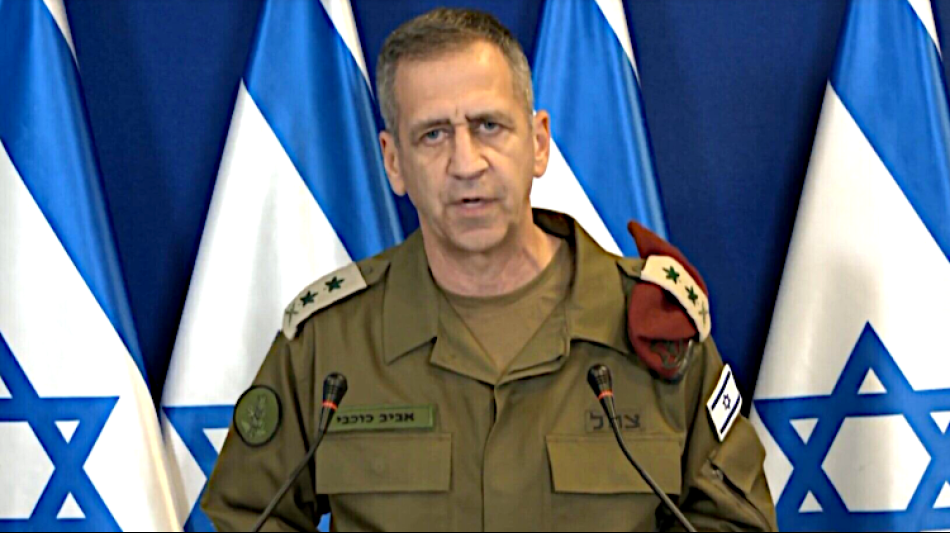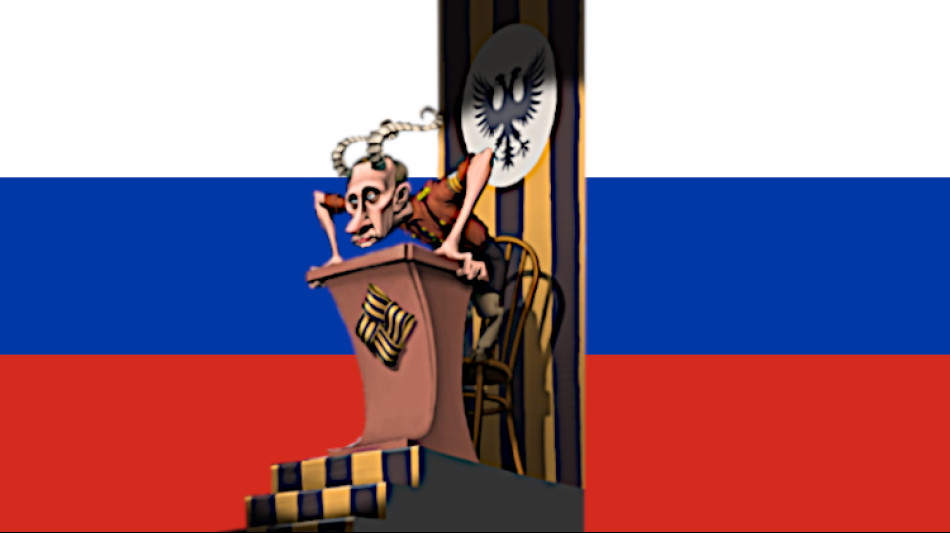-
 Plastic pollution talks: the key sticking points
Plastic pollution talks: the key sticking points
-
Indonesia rejects Apple's $100 million investment offer

-
 Pakistan police fire tear gas, rubber bullets at pro-Khan supporters
Pakistan police fire tear gas, rubber bullets at pro-Khan supporters
-
Hong Kong same-sex couples win housing, inheritance rights

-
 Indonesia digs out as flooding, landslide death toll hits 20
Indonesia digs out as flooding, landslide death toll hits 20
-
Liverpool's old guard thriving despite uncertain futures

-
 Mbappe takes reins for Real Madrid in Liverpool clash
Mbappe takes reins for Real Madrid in Liverpool clash
-
As AI gets real, slow and steady wins the race

-
 China's Huawei to launch 'milestone' smartphone with homegrown OS
China's Huawei to launch 'milestone' smartphone with homegrown OS
-
Porzingis and Morant make triumphant NBA returns

-
 Hong Kong top court affirms housing, inheritance rights for same-sex couples
Hong Kong top court affirms housing, inheritance rights for same-sex couples
-
Philippines, China clashes trigger money-making disinformation

-
 Most Asian markets drop, dollar gains as Trump fires tariff warning
Most Asian markets drop, dollar gains as Trump fires tariff warning
-
England 'not quivering' ahead of New Zealand Test challenge

-
 Bethell to bat at three on England Test debut against New Zealand
Bethell to bat at three on England Test debut against New Zealand
-
Trump vows big tariffs on Mexico, Canada and China

-
 New Zealand and England to play for Crowe-Thorpe Trophy
New Zealand and England to play for Crowe-Thorpe Trophy
-
Scheffler, Schauffele and McIlroy up for PGA Player of the Year

-
 Trump to face less internal pushback in new term: ex-commerce chief
Trump to face less internal pushback in new term: ex-commerce chief
-
Extreme weather threatens Canada's hydropower future

-
 More than 34,000 register as candidates for Mexico judges' election
More than 34,000 register as candidates for Mexico judges' election
-
Australia ban cycling's Richardson for life after UK defection

-
 Internal displacement in Africa triples in 15 years: monitor
Internal displacement in Africa triples in 15 years: monitor
-
'Remarkable global progress': HIV cases and deaths declining

-
 Social media firms raise 'serious concerns' over Australian U-16 ban
Social media firms raise 'serious concerns' over Australian U-16 ban
-
Tiger to skip Hero World Challenge after back surgery

-
 MLB shifts six 2025 Rays games to avoid weather issues
MLB shifts six 2025 Rays games to avoid weather issues
-
US women's keeper Naeher retiring after Europe matches

-
 West Ham stun Newcastle to ease pressure on Lopetegui
West Ham stun Newcastle to ease pressure on Lopetegui
-
Arteta calls on Arsenal to show 'ruthless' streak on Champions League travels

-
 Israel bids emotional farewell to rabbi killed in UAE
Israel bids emotional farewell to rabbi killed in UAE
-
Sonar image was rock formation, not Amelia Earhart plane: explorer

-
 Tottenham goalkeeper Vicario has ankle surgery
Tottenham goalkeeper Vicario has ankle surgery
-
Green light for Cadillac to join Formula One grid in 2026

-
 Israel to decide on ceasefire as US says deal 'close'
Israel to decide on ceasefire as US says deal 'close'
-
California vows to step in if Trump kills US EV tax credit

-
 Special counsel asks judge to dismiss subversion case against Trump
Special counsel asks judge to dismiss subversion case against Trump
-
Ronaldo double takes Al Nassr to brink of Asian Champions League quarters

-
 Brazil minister says supports meat supplier 'boycott' of Carrefour
Brazil minister says supports meat supplier 'boycott' of Carrefour
-
Steelmaker ArcelorMittal to close two plants in France: unions

-
 Macy's says employee hid up to $154 mn in costs over 3 years
Macy's says employee hid up to $154 mn in costs over 3 years
-
EU grocery shoppers 'fooled' by 'maze' of food labels: audit

-
 Awaiting Commerzbank, Italy's UniCredit bids for Italian rival
Awaiting Commerzbank, Italy's UniCredit bids for Italian rival
-
Alonso jokes about playing return amid Leverkusen injury woes

-
 G7 ministers discuss ceasefire efforts in Mideast
G7 ministers discuss ceasefire efforts in Mideast
-
Bayern need to win all remaining Champions League games, says Kane

-
 Indian cricketer, 13, youngest to be sold in IPL history
Indian cricketer, 13, youngest to be sold in IPL history
-
Beating Man City eases pressure for Arsenal game: new Sporting coach

-
 Argentine court hears bid to end rape case against French rugby players
Argentine court hears bid to end rape case against French rugby players
-
Egypt says 17 missing after Red Sea tourist boat capsizes

Trump announces Homan as new 'border czar'
Thomas Douglas Homan: A Comprehensive Overview of His Career and Influence on U.S. Immigration Policy
Thomas Douglas Homan is a prominent American law enforcement official best known for his role as the Acting Director of U.S. Immigration and Customs Enforcement (ICE) from January 2017 to June 2018. His tenure coincided with a period of significant change in U.S. immigration policy under the Trump administration. Homan's career reflects a steadfast commitment to immigration enforcement and has left a lasting impact on the national discourse surrounding immigration.
Early Life and Education
Born on 28 November 1961 in New York State, Thomas Homan embarked on a career in law enforcement after completing his education. He graduated from the State University of New York with a degree in criminal justice, which laid the foundation for his future endeavours in federal law enforcement agencies.
Career Beginnings with Immigration Enforcement
Homan's career with immigration enforcement began in 1984 when he joined the U.S. Border Patrol as a police officer. His early work involved patrolling the U.S.-Canada border, where he gained firsthand experience in immigration issues. Demonstrating dedication and proficiency, he quickly rose through the ranks, eventually transitioning to the Immigration and Naturalization Service (INS).
Advancement within ICE
With the creation of the Department of Homeland Security (DHS) in 2003, Homan became a part of ICE, a new agency formed under DHS to handle immigration enforcement and related matters. He served in various leadership roles, including as Deputy Assistant Director for Investigations, where he was responsible for overseeing criminal investigations into immigration violations.
In 2013, under the Obama administration, Homan was appointed as the Executive Associate Director of ICE Enforcement and Removal Operations (ERO). In this capacity, he managed the identification, apprehension, and deportation of illegal immigrants within the United States. His efforts focused on prioritising the removal of individuals who posed threats to national security and public safety.
Acting Director of ICE
In January 2017, President Donald Trump appointed Thomas Homan as the Acting Director of ICE. His leadership marked a significant shift in the agency's approach to immigration enforcement. Aligning with the administration's stringent policies, Homan directed ICE to intensify efforts to locate and detain undocumented immigrants, regardless of criminal history.
Homan became a vocal advocate for robust immigration enforcement, frequently appearing in media interviews and congressional hearings. He emphasised the importance of upholding the rule of law and argued that strict enforcement was necessary to deter illegal immigration and protect national security.
Controversies and Public Response
Homan's tenure as Acting Director was not without controversy. Advocacy groups and critics accused ICE under his leadership of aggressive tactics and a disregard for humanitarian concerns. The agency faced backlash for actions such as workplace raids and the detention of individuals without criminal records.
One of the most contentious issues during his tenure was the enforcement of the administration's "zero tolerance" policy, which led to the separation of families at the U.S.-Mexico border. Homan defended the policy as a necessary measure to enforce immigration laws but faced significant criticism from lawmakers, human rights organisations, and the public.
Retirement and Continued Advocacy
Thomas Homan announced his retirement from ICE in June 2018. However, he remained an influential figure in immigration policy debates. He continued to advocate for strict enforcement measures and frequently provided commentary on immigration issues through media appearances and writings.
In 2019, President Trump announced plans to appoint Homan as a "border czar" to coordinate immigration enforcement efforts across federal agencies. Although Homan did not ultimately assume this position, his expertise and viewpoints continued to shape discussions on immigration policy.
Legacy and Impact
Thomas Homan's career has left an indelible mark on U.S. immigration enforcement. His unwavering stance on strict immigration laws and his role in implementing the Trump administration's policies have made him a significant figure in the ongoing national conversation about immigration.
Supporters praise Homan for his commitment to law enforcement and national security, arguing that his policies deter illegal immigration and protect American citizens. Critics, however, contend that his approach lacks compassion and fails to address the complexities of immigration, including the humanitarian needs of migrants and asylum seekers.
Conclusion
Thomas Douglas Homan's career encapsulates the challenges and controversies inherent in U.S. immigration policy. His influence extends beyond his tenure at ICE, as he continues to be a prominent voice advocating for stringent enforcement measures. As the United States grapples with immigration reform and seeks to balance security concerns with humanitarian obligations, Homan's perspectives remain a critical part of the dialogue.

EU: Netherlands causes headaches in Brussels

Israel in the fight against the terror scum of Hamas

Italy: Storm Ciarán brings disastrous record rainfall

What remains of the EU leader's visit to Kiev?

Gaza: Hamas terrorists responsible for expulsion

Vice-Chancellor Habeck: Empty words without action?

Israel: More bodies, weeks after Hamas terror attack

Israel politician threatens russian terror state on Russian TV

EU: No agreement on 10-year extension for glyphosate

Ukraine: When will the world stand up to Russian terror?

Warming: Methane levels rising, is this nature's answer?




